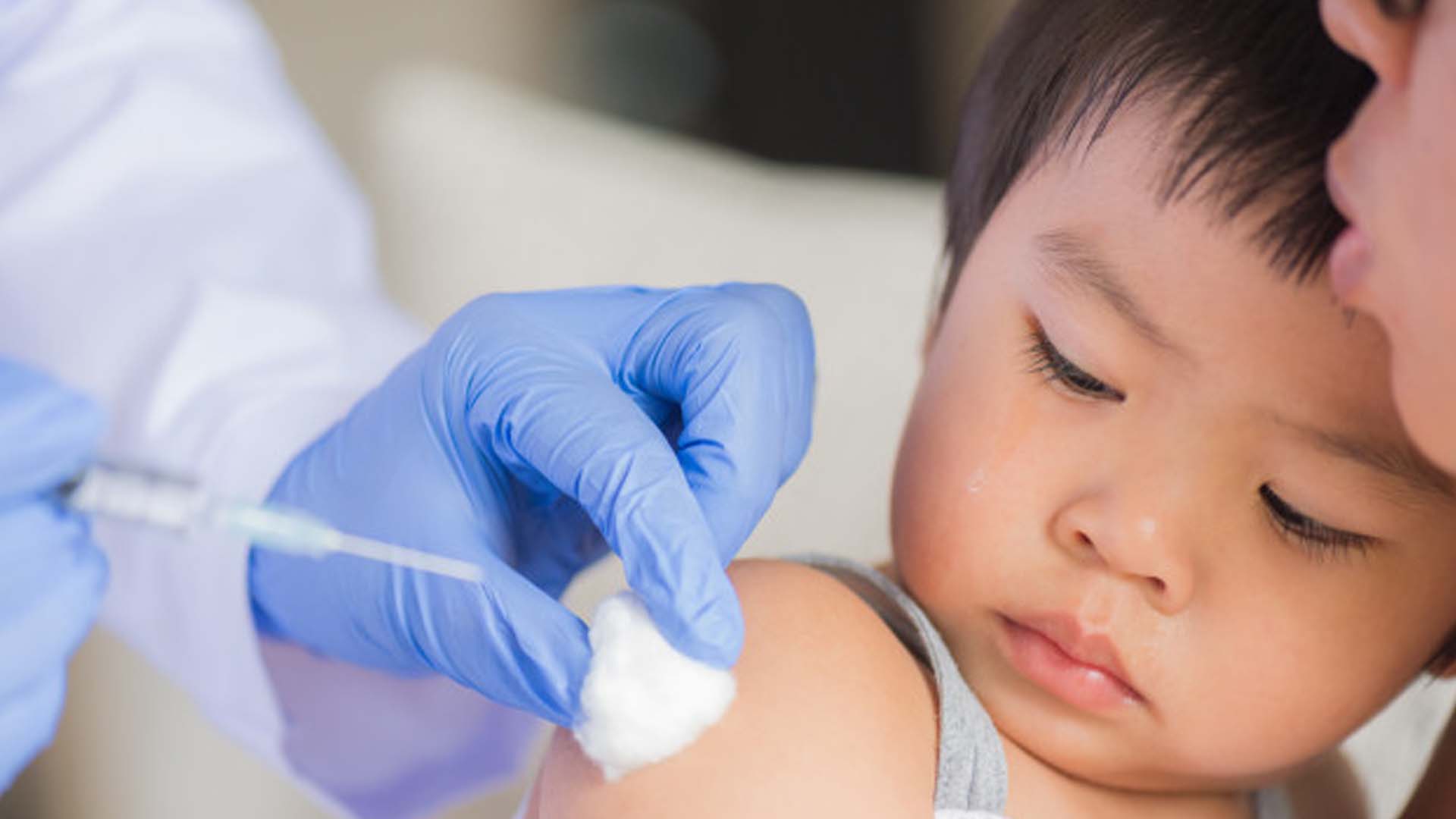Leslie is a mother of four children. Her youngest child caught measles and suffered severe coughing. He eventually passed away. If he was protected with vaccine, he would have celebrated his 2nd birthday this year.
The Philippines experienced a Measles outbreak from 2018 to 2019 where more than 70,000 cases and 841 deaths were recorded, mostly children.

Medical experts say that complete immunization is the most effective way to keep people safe from Measles, and also from Rubella, commonly known as “tigdas hangin”, whose symptoms include fever, rashes, conjunctivitis, head, body and eye aches, chills and anorexia.
Still, many of them, especially children, do not receive or have not completed immunization so diseases like this remain widespread in the country.
On September 2019, children were put at risk of lifelong paralysis due to the outbreak of Polio, where the virus enters the body through the mouth, by ingesting contaminated food and water. Most infections do not show symptoms, there is no medicine that could cure this and the only protection is through proper immunization.
Due to the COVID-19 pandemic, children who are not yet vaccinated become more at high risk of acquiring preventable diseases such as Measles, Rubella and Polio.
Three out of four children do not receive vaccination against Measles. Its vast spread may cause children to experience severe complications, endangering their precious lives.
The Department of Health (DOH) believes that no children should suffer or die from diseases that have long had effective and safe vaccines to fight them.
Chikiting Ligtas

Child-focused humanitarian agency World Vision, for more than 60 years in the Philippines, has been committed to provide children and their families with better opportunities for improved well-being and sustainable change.
In partnership with DOH, World Vision’s health and nutrition programs have supported the agency’s implementation, policy, and capacity building for various nutrition programs such as Infant and Young Child Feeding, Micronutrient Supplementation, Community-Based Management of Acute Malnutrition, and Nutrition in Emergencies.

For this year’s immunization program by DOH called MR-OPV SIA “Chikiting Ligtas sa Dagdag Bakuna Kontra Rubello, Polio, at Tigdas!” (Kids safe with supplemental vaccines against Rubello, Polio and Measles), the child-focused organization is again mobilizing its partners to support this massive campaign.
Data show that people refuse to get vaccinated because they fear the injection, the vaccine and its side effects. They are also afraid of acquiring COVID-19 when they go to health centers while others say they have their own pediatrician to administer the vaccine or it is against their religious and personal beliefs.

DOH Secretary Francisco T. Duque III said the agency has continuously given immunization services against Measles, Polio, Rubella and other vaccine-preventable diseases. It has also allocated resources for the campaign, even for personal protective equipment of the health workers. “’Wag bibitawan ang ibang immunization activities dahil mahalaga ito upang proteksyunan ang ating mga kabataan,” (Do not let go of other immunization activities because these are important at protecting children) the health chief said.
World Vision will support this through an immunization awareness campaign by circulating posters in its covered areas nationwide, along with promotions online, in the media and in institutional networks.

“As we observe the National Children’s Month this November, we will highlight the overall well-being of children, including their health through immunization and proper nutrition,” said Rommel V. Fuerte, World Vision’s National Director.
Immunization-champion moms called “Bakunanay” shared reassuring messages to mothers about the effectiveness and safety of vaccines. Demi said “as a parent, it is my responsibility to protect my child that is why I make sure that my baby has complete protection against vaccine-preventable diseases like Rubella, Polio and Measles.
Another Bakunanay, Mildred, said “this time of pandemic, it’s hard to be sick so I complete my baby’s vaccine. I know that this will not just benefit my family but the whole community as well. Bakunanay Debbie said “I trust health centers and I want my child to receive the same vaccines I received when I was young so my baby will be protected from and safe against diseases.
For those who want to support and know more about the immunization program of DOH and World Vision’s work, visit doh.gov.ph and worldvision.org.ph.








